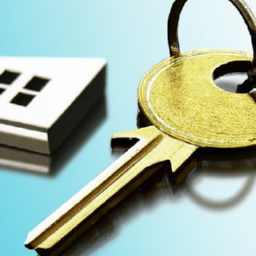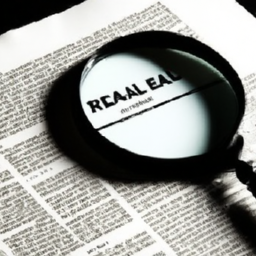Get all the information you need about the "Clear to Close" process in the real estate industry. Understand its importance, the required documentation, common delays, and tips to expedite the process.
Convertible Mortgage

In the world of home financing, the “Convertible Mortgage” has emerged as a game-changer for many homeowners. With its unique blend of flexibility and stability, this innovative product offers borrowers the opportunity to convert their mortgage into different loan terms as their financial situation evolves. By providing homeowners with the ability to adapt to changing circumstances, the Convertible Mortgage is revolutionizing the way people approach their home loans. Whether you are a first-time buyer or an experienced homeowner, this article explores the key features and benefits of the Convertible Mortgage, shedding light on why it has become a sought-after option for those seeking long-term financial peace of mind.
What is a Convertible Mortgage?
Definition
A convertible mortgage is a type of mortgage loan that offers borrowers the flexibility to convert their mortgage from an adjustable-rate to a fixed-rate mortgage during a specified conversion period. This conversion option allows borrowers to take advantage of potentially lower interest rates in the future while initially benefiting from lower interest rates associated with an adjustable-rate mortgage.
Features
The key feature of a convertible mortgage is the ability to convert the loan from an adjustable-rate to a fixed-rate mortgage. This conversion option is typically available to borrowers during a specific period, which can range from a few months to several years. During this conversion period, borrowers have the option to switch to a fixed-rate mortgage without having to go through the refinancing process.
Benefits
There are several benefits to choosing a convertible mortgage. One of the main advantages is the potential to secure a lower interest rate in the future. This can be particularly beneficial if interest rates are expected to rise. By initially choosing an adjustable-rate mortgage and converting it to a fixed-rate mortgage when rates are higher, borrowers can mitigate the risk of paying higher interest over the long term. Additionally, the conversion option provides borrowers with added flexibility, allowing them to adapt their mortgage to their changing financial circumstances.
How Does a Convertible Mortgage Work?
Conversion Option
The conversion option in a convertible mortgage allows borrowers to switch from an adjustable-rate mortgage to a fixed-rate mortgage. This option is typically available during a specified conversion period, which varies depending on the lender. During this period, borrowers can exercise their right to convert their adjustable-rate mortgage to a fixed-rate mortgage. This can be done by contacting the lender and formally requesting the conversion. Once the conversion is approved, the terms of the mortgage, including the interest rate and payment terms, will be adjusted accordingly.
Interest Rates
In an adjustable-rate mortgage, the interest rate is variable and is typically tied to a specific benchmark, such as the prime rate or the London Interbank Offered Rate (LIBOR). This means that the interest rate can fluctuate over time, leading to changes in the monthly mortgage payment. On the other hand, a fixed-rate mortgage offers borrowers a stable interest rate that remains constant throughout the loan term. By converting their adjustable-rate mortgage to a fixed-rate mortgage, borrowers can lock in a specific interest rate, providing them with stability and predictability in their mortgage payments.
Payment Terms
When converting a mortgage from an adjustable-rate to a fixed-rate, the payment terms may also change. In an adjustable-rate mortgage, the monthly payment can vary over the life of the loan, depending on changes in the interest rate. However, with a fixed-rate mortgage, the monthly payment remains the same for the entire loan term. This can simplify budgeting and provide borrowers with peace of mind, knowing that their mortgage payment will not change over time.
Pros and Cons of a Convertible Mortgage
Advantages
One of the main advantages of a convertible mortgage is the flexibility it offers to borrowers. The conversion option allows borrowers to adapt their mortgage to changes in interest rates and their financial situation. By converting to a fixed-rate mortgage, borrowers can secure a stable interest rate and protect themselves from potential future rate increases. Additionally, the conversion process is often simpler and less expensive compared to refinancing. It allows borrowers to make the switch without having to go through the process of applying for a new loan, paying closing costs, and potentially incurring additional fees.
Disadvantages
While a convertible mortgage offers flexibility, it also comes with some potential drawbacks. One disadvantage is that the conversion option may come with certain restrictions or limitations. For example, there may be a limit on the number of times a borrower can convert their mortgage, or there may be specific timeframes during which conversions are allowed. Another disadvantage is that convertible mortgages may come with higher initial interest rates compared to traditional fixed-rate mortgages. This is because the lender is offering the added flexibility of the conversion option.
Who Should Consider a Convertible Mortgage?
Homebuyers
Homebuyers who are uncertain about future interest rates may find convertible mortgages appealing. This type of mortgage provides them with the flexibility to benefit from potentially lower interest rates in the future while initially taking advantage of lower rates associated with adjustable-rate mortgages. Additionally, homebuyers who expect a change in their financial situation or plans to potentially sell the property in the near future may find the flexibility of a convertible mortgage advantageous.
Investors
Real estate investors who are looking to take advantage of rising property values may consider a convertible mortgage. By initially opting for an adjustable-rate mortgage and converting it to a fixed-rate mortgage when property values increase, investors can mitigate their interest rate risk and potentially increase their return on investment. Additionally, the conversion option allows investors to adapt their financing strategy to changes in the real estate market.
How to Qualify for a Convertible Mortgage
Credit Score
To qualify for a convertible mortgage, borrowers typically need to have a good credit score. Lenders use credit scores to assess a borrower’s creditworthiness and determine their eligibility for a mortgage. A higher credit score can increase the chances of approval and may also result in more favorable loan terms, such as lower interest rates. It’s important for borrowers to review their credit reports and address any discrepancies or issues before applying for a convertible mortgage.
Income Requirements
Lenders also consider a borrower’s income when evaluating their eligibility for a convertible mortgage. Borrowers need to demonstrate that they have a stable source of income and sufficient financial means to make the monthly mortgage payments. Lenders may require borrowers to provide income documentation, such as pay stubs or tax returns, to verify their income. It’s important for borrowers to assess their income and ensure it meets the lender’s requirements before applying for a convertible mortgage.
Property Eligibility
Finally, the property itself needs to meet certain eligibility criteria to qualify for a convertible mortgage. Lenders typically require a property appraisal to assess its value and condition. Additionally, the property should be considered suitable collateral for the mortgage loan. This means that it should be in good condition, located in a desirable neighborhood, and meet any specific requirements set by the lender. Borrowers should consult with their lender to determine the eligibility criteria for the property they are considering.
Tips for Choosing a Convertible Mortgage
Research Lenders
It’s important for borrowers to research and compare different lenders when considering a convertible mortgage. Each lender may offer different conversion options, interest rates, and fees. By gathering information on multiple lenders, borrowers can make an informed decision and select a lender that offers the most favorable terms for their specific needs.
Compare Loan Options
In addition to researching lenders, borrowers should also compare different loan options within each lender’s offerings. This includes comparing the terms of adjustable-rate mortgages, fixed-rate mortgages, and convertible mortgages. By carefully evaluating each option, borrowers can determine which type of mortgage best suits their financial goals and risk tolerance.
Consider Future Plans
When choosing a convertible mortgage, borrowers should also consider their future plans. For example, if they anticipate selling the property or refinancing the mortgage in the near future, the conversion option may be less relevant. On the other hand, if they plan to stay in the property for an extended period and are concerned about potential interest rate increases, the conversion option may be a significant factor in their decision-making process.
Frequently Asked Questions about Convertible Mortgages
What is the difference between a convertible mortgage and a conventional mortgage?
A convertible mortgage differs from a conventional mortgage in that it offers borrowers the option to convert their adjustable-rate mortgage to a fixed-rate mortgage during a specified conversion period. This conversion option is not typically available with conventional mortgages.
Can I convert to a fixed-rate mortgage anytime?
No, the conversion option in a convertible mortgage is generally only available during a specified conversion period. This period is determined by the lender and is typically outlined in the loan agreement. Once the conversion period has passed, borrowers may no longer have the option to convert their mortgage to a fixed-rate.
Is there a limit on the number of times I can convert my mortgage?
The number of times a borrower can convert their mortgage may be limited by the lender. Some lenders may impose restrictions on the number of conversions allowed or may have specific timeframes during which conversions can occur. It’s important for borrowers to review the terms of their loan agreement to understand any limitations or restrictions related to the conversion option.


